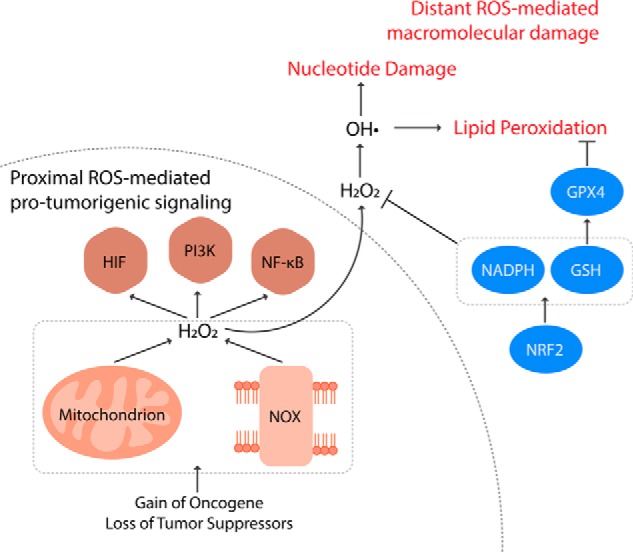Figure 2.

Regulation of redox balance in cancer cells. Compared with nontransformed cells, cancer cells have elevated levels of ROS instigated by acquisition of oncogenes and loss of tumor suppressors. ROS from mitochondria and NOXs oxidize co-localized redox-regulated target proteins to activate pro-tumorigenic signaling pathways, including HIF-1α, PI3K, and NF-κB. Distant from the sites of production, however, ROS nonspecifically react with nucleotides and lipids inducing oxidative damage and even cell death. These distant damaging ROS can be controlled by antioxidant systems such as NRF2, NADPH generation, GSH synthesis/regeneration, and GPX4. Therefore, cancer cells producing elevated levels of ROS concomitantly increase such antioxidant capacities. This shift in redox balance enables cancer cells to hyper-activate the proximal ROS-mediated pro-survival and proliferation signaling without experiencing ROS toxicity.
